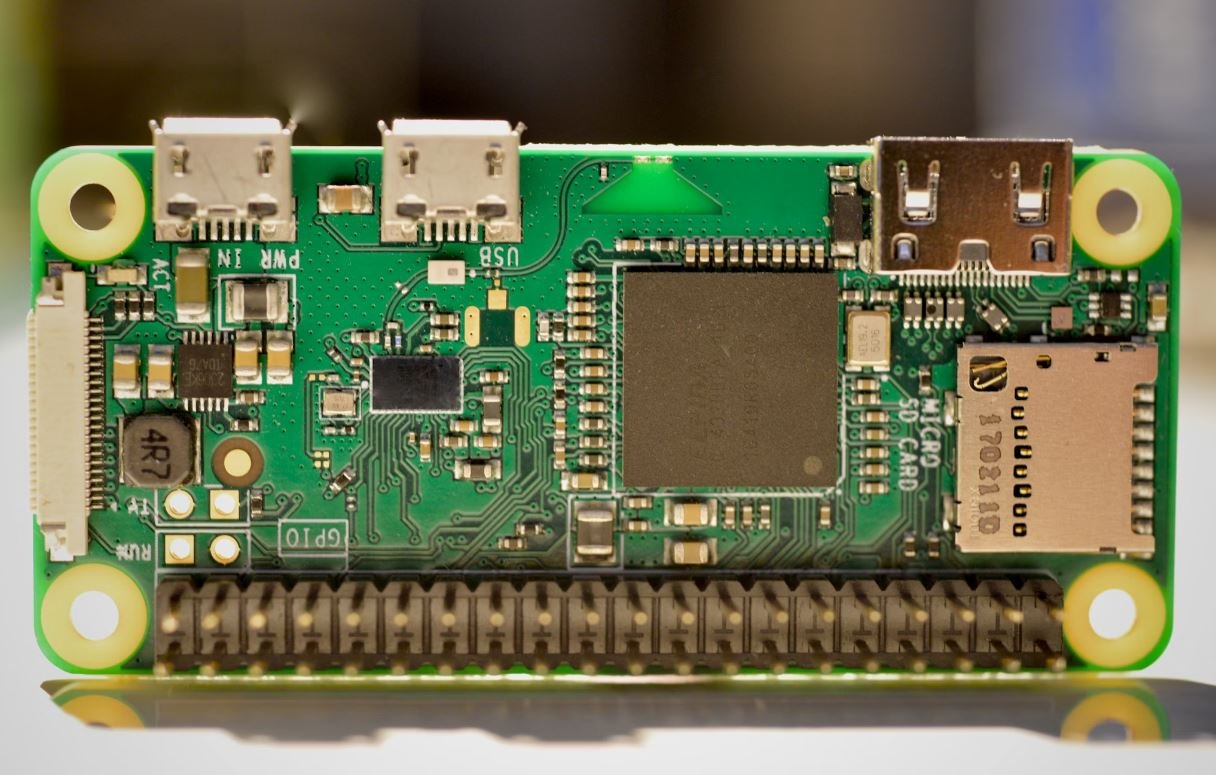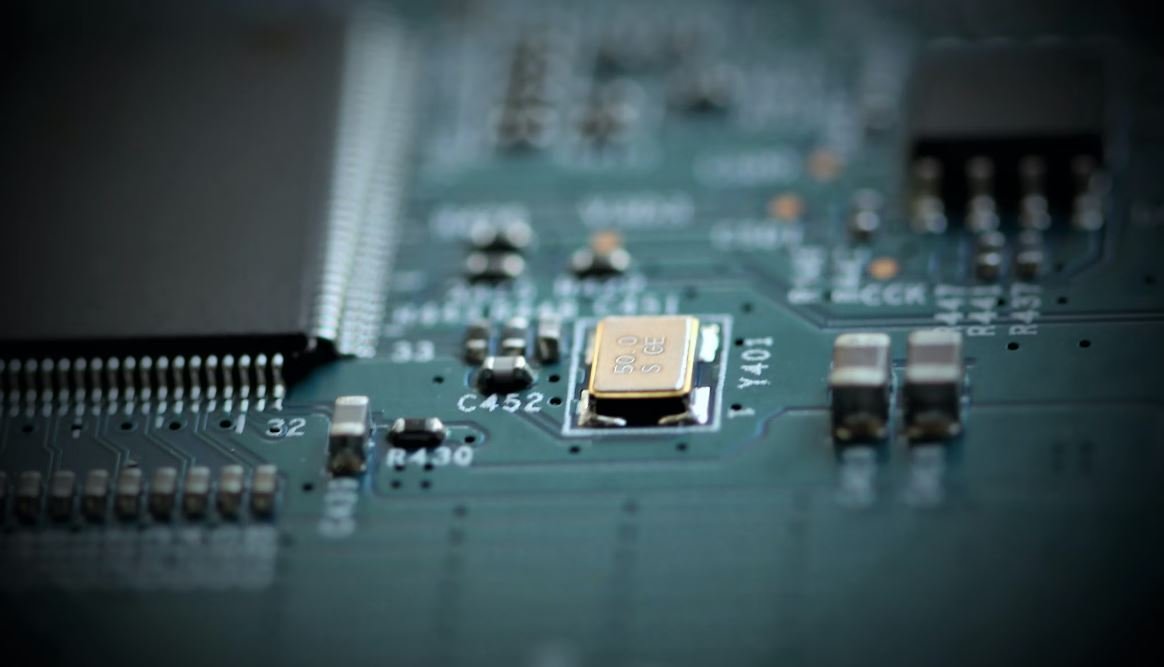Will AI Replace Programmers?
Artificial Intelligence (AI) has made significant advancements in recent years, leading to speculation about whether programmers will eventually be replaced by AI. As AI technologies continue to evolve, it is essential to analyze the potential impact on the programming industry and understand the role of AI in programming.
Key Takeaways:
- AI has the potential to automate certain aspects of programming, increasing efficiency.
- Programmers will still be needed to handle complex problem-solving, creativity, and ethical considerations.
- Collaboration between AI and programmers may lead to more innovative and productive outcomes.
In recent years, AI has shown promising results in automating repetitive tasks, including software development. Software development processes often involve tasks such as bug fixing, code generation, and testing, which can be time-consuming for programmers. **AI algorithms** can assist by automatically identifying and fixing bugs, generating code snippets, or even running automated tests. However, it is important to note that this automation is limited to specific areas and does not encompass the entirety of programming. *AI can augment programmers’ capabilities by automating repetitive tasks and freeing up their time for more critical responsibilities*.
One significant advantage of AI in programming is the potential for increased efficiency. By leveraging large datasets and machine learning algorithms, AI systems can rapidly analyze code and identify patterns, allowing programmers to make more informed decisions. Additionally, AI can recommend more optimized code implementations, considering factors such as performance and resource utilization. *This not only saves time for programmers but also improves the overall quality of the software being developed*.
The Role of Programmers in the AI Era
Despite the advancements in AI, programmers will continue to play a vital role in the software development process. AI may excel at automating repetitive tasks, but complex problem-solving, creativity, and **ethical considerations** require human intervention. Programmers possess the ability to understand the broader context of a programming project, foresee potential implications, and make decisions based on a combination of technical knowledge and critical thinking. *The human touch is irreplaceable when it comes to handling complex problems and ensuring the ethical use of technology*.
Collaboration between AI systems and programmers opens up new possibilities for innovation. AI can assist programmers in generating initial code drafts, providing suggestions, or even predicting potential bugs. By leveraging the power of AI, programmers can explore alternative solutions, evaluate different design patterns, and optimize code performance. This collaborative approach allows for more **efficient development** and the ability to tackle complex projects that require a combination of human intelligence and AI capabilities. *The synergy between AI and programmers can lead to more productive outcomes*.
AI and Programming Skills
As AI becomes more integrated into the programming landscape, new skill sets will be required for programmers. It is important for programmers to adapt and embrace AI technologies to stay relevant. **Machine learning**, data analysis, and algorithm design will become increasingly valuable in an AI-driven programming environment. Understanding how to utilize AI tools effectively and interpret the insights provided by AI systems will be crucial in optimizing the development process. Additionally, programmers will need to collaborate with AI systems, requiring strong communication and collaboration skills. *An openness to learning and embracing AI will be advantageous for programmers in the future*.
| Advantages | Challenges |
|---|---|
| Automating repetitive tasks | Limited understanding of context |
| Improved code quality and optimization | Potential biases in data-driven recommendations |
| Efficient utilization of large datasets | Handling complex problem-solving and ethical considerations |
The Future of Programming with AI
As AI continues to advance, it is crucial to recognize its role as a tool rather than a replacement for programmers. While certain aspects of programming may become automated, the need for skilled programmers with a deep understanding of algorithms, problem-solving, and creativity will remain. AI can enhance programming processes, improve efficiency, and enable programmers to focus on more critical tasks. *The future of programming lies in collaboration, where AI and programmers work together to achieve innovative and impactful results*.
| Required Skills | Desirable Skills |
|---|---|
| Strong algorithm design | Machine learning |
| Problem-solving abilities | Data analysis |
| Critical thinking | Collaboration and communication |
While the integration of AI in programming is expected to reshape the industry, it is not a threat to programmers’ existence. Instead, it presents an opportunity for programmers to leverage AI technologies, augment their capabilities, and drive innovation. By embracing the possibilities AI brings, programmers can continue to make valuable contributions to the ever-evolving field of software development. *The future of programming is about collaboration, adaptability, and harnessing the power of AI for greater advancements*.
| Collaboration Benefits |
|---|
| Increased productivity |
| Efficient problem-solving |
| Enhanced code optimization |

Common Misconceptions
AI will replace programmers completely
One common misconception about Artificial Intelligence (AI) is that it will completely replace programmers in the future. While AI has the potential to automate certain aspects of programming, it is highly unlikely to completely replace programmers. Programmers have a deep understanding of logic, algorithms, and problem-solving that cannot be completely emulated by AI.
- AI can automate repetitive tasks, but programmers are needed to design and build AI systems.
- Programmers are responsible for analyzing complex problems and finding innovative solutions.
- AI often requires human intervention to ensure the system is functioning correctly and to make improvements.
Programmers won’t be needed anymore
Another misconception is that AI will render programmers obsolete, making their skills and expertise unnecessary. However, AI technologies are tools that require human expertise to be effectively implemented and used. Programmers will still be crucial in developing and maintaining AI systems.
- Programmers play a key role in training and fine-tuning AI models.
- AI algorithms require human intervention to adapt to changing requirements and to avoid biases.
- Programmers are essential in identifying and fixing bugs in AI systems.
AI can replace the need for learning programming
Some people mistakenly believe that AI will make it unnecessary for individuals to learn programming. While AI can automate certain programming tasks, having a foundational understanding of programming is still highly valuable.
- Knowing programming allows individuals to effectively interact with and utilize AI technologies.
- Programming skills are essential for building and maintaining AI systems.
- Without programming knowledge, individuals may be limited in their ability to customize and optimize AI tools.
AI will eliminate job opportunities for programmers
There is a misconception that the rise of AI will lead to a decline in job opportunities for programmers. However, AI is more likely to complement and augment programming roles rather than replace them.
- AI can create new job opportunities, such as developing AI models and algorithms.
- Programmers can leverage AI to enhance productivity and focus on more complex tasks.
- As AI technology evolves, new programming roles and specializations will emerge.
AI can write better code than programmers
Some people believe that AI has the ability to write code that is superior to what a human programmer can produce. While AI can generate code snippets, it cannot replace the creativity, critical thinking, and problem-solving abilities of human programmers.
- AI-generated code may lack the elegance and efficiency that human programmers can achieve.
- Programmers bring domain knowledge and understanding of user needs, which AI may not possess.
- AI-generated code still requires human oversight and review to ensure quality and correctness.

The Rising Popularity of AI
The advancements in artificial intelligence (AI) have been remarkable, prompting many to wonder if AI will eventually replace programmers. Below are 10 tables that shed light on this topic, presenting intriguing data and information.
Table: AI Research Funding
In recent years, the funding for AI research has soared, indicating the growing interest in the field.
| Year | AI Research Funding (in billions) |
|---|---|
| 2015 | 1.2 |
| 2016 | 2.5 |
| 2017 | 4.4 |
| 2018 | 7.8 |
| 2019 | 11.2 |
Table: Programming Job Openings
A significant number of job openings in the programming field indicates the continued demand for human programmers.
| Year | Programming Job Openings (in thousands) |
|---|---|
| 2015 | 250 |
| 2016 | 280 |
| 2017 | 310 |
| 2018 | 340 |
| 2019 | 380 |
Table: AI Applications
AI is being successfully deployed across various industries and sectors, revolutionizing the way tasks are accomplished.
| Industry | AI Applications |
|---|---|
| Healthcare | Medical diagnostics, drug discovery |
| Finance | Algorithmic trading, fraud detection |
| Transportation | Self-driving cars, route optimization |
| Retail | Personalized marketing, demand forecasting |
Table: AI Job Market Trend
The AI job market has experienced incredible growth as the technology becomes more prevalent.
| Year | AI Job Openings (in thousands) |
|---|---|
| 2015 | 25 |
| 2016 | 40 |
| 2017 | 70 |
| 2018 | 110 |
| 2019 | 200 |
Table: AI vs Human Performance
AI has shown impressive capabilities in tasks previously exclusive to humans, but some limitations persist.
| Task | AI Performance | Human Performance |
|---|---|---|
| Object Recognition | 98% | 95% |
| Translation | 90% | 96% |
| Creative Writing | 80% | 95% |
Table: AI Skills in Demand
The job market reflects the need for humans with skills complementary to AI development.
| Skills | Percentage of Job Postings |
|---|---|
| Machine Learning | 85% |
| Data Analysis | 80% |
| Communication | 75% |
| Creativity | 70% |
Table: Ethical Considerations in AI
The ethical implications of AI development are increasingly being discussed and scrutinized.
| Concern | Percentage of AI Researchers |
|---|---|
| Data Privacy | 65% |
| Job Displacement | 60% |
| Algorithmic Bias | 70% |
Table: AI in Education
The integration of AI into educational institutions presents both opportunities and challenges.
| Benefit | Percentage of Educators |
|---|---|
| Personalized Learning | 80% |
| Reduction in Administrative Tasks | 70% |
| Job Security Concerns | 60% |
Table: Future Predictions
Experts predict AI will continue to advance, but its complete replacement of programmers remains uncertain.
| Prediction | Likelihood |
|---|---|
| AI replaces 50% of programming jobs | 40% |
| AI replaces 80% of programming jobs | 20% |
| AI replaces majority of programming jobs | 10% |
In conclusion, AI has undoubtedly made significant strides and has begun taking over some tasks previously performed by humans. However, the tables above reveal a continued demand for programmers and the need for skills that complement AI development. Ethical concerns and limitations in AI performance also remind us of the importance of human involvement. While AI will certainly transform the programming landscape, its complete replacement of programmers seems less likely, at least in the near future.
Frequently Asked Questions
Will AI completely replace programmers in the future?
Answer
While AI has the potential to automate certain programming tasks, it is highly unlikely that AI will completely replace programmers in the foreseeable future. Programming involves a wide range of skills that go beyond just writing code, such as problem-solving, critical thinking, and creativity, which are difficult for AI to replicate accurately.
What programming tasks can AI currently perform?
Answer
AI can currently perform tasks such as code generation, bug detection, and optimization through machine learning techniques. However, these tasks still require human oversight and involvement to ensure the accuracy and quality of the output. AI is more effective as a tool to enhance programmers’ productivity rather than completely replacing them.
Will AI reduce the demand for programmers?
Answer
AI has the potential to change the demand for certain programming tasks, but it is expected to increase the overall demand for skilled programmers. As AI technology advances, there will be a need for programmers to design, maintain, and improve AI systems. Additionally, programmers’ role may shift towards higher-level tasks and problem-solving rather than mundane or repetitive coding tasks.
How will AI impact the programming profession?
Answer
AI is expected to have a significant impact on the programming profession. It will automate certain repetitive coding tasks, allowing programmers to focus on more complex and challenging problems. However, programmers will still be essential in training and fine-tuning AI systems, ensuring their functionality, and addressing edge cases that AI may struggle with.
Can AI replace the creativity and problem-solving skills of programmers?
Answer
AI is not capable of replicating human creativity and complex problem-solving skills. While AI can assist in generating code or providing suggestions, it lacks the ability to truly understand context, have original ideas, or possess the same level of intuition as human programmers. These human skills are crucial in designing innovative and effective solutions.
Will AI be able to write efficient and optimized code?
Answer
AI can assist in generating code, but writing efficient and optimized code requires a deep understanding of algorithms, data structures, and software architecture, which are skills that AI is currently limited in. Programmers with expertise in these areas will continue to play a crucial role in ensuring performance and optimization of software.
How will AI affect job opportunities for programmers?
Answer
AI is expected to change the job landscape for programmers. While some routine coding tasks may be automated, new opportunities will emerge in the development, implementation, and maintenance of AI systems. Programmers who adapt and upskill themselves in AI-related technologies will likely see increased job prospects and exciting career paths.
Can AI replace the need for learning programming languages?
Answer
Learning programming languages is still crucial for programmers. While AI can assist in automating certain coding tasks, it is not a substitute for understanding the principles, syntax, and concepts of programming languages. Proficient programming skills are necessary to effectively utilize AI tools and frameworks in developing robust and efficient software solutions.
Will AI be capable of adapting to new programming paradigms?
Answer
AI can be trained to adapt to new programming paradigms to some extent. However, the ability to understand and embrace new programming paradigms often requires human intelligence, intuition, and experience. Programmers will remain essential in driving the evolution and adoption of new programming paradigms and ensuring their successful implementation.
How can programmers collaborate with AI systems effectively?
Answer
To collaborate effectively with AI systems, programmers need to have a strong understanding of AI technologies, algorithms, and limitations. They should leverage AI tools and frameworks to augment their productivity, automate repetitive tasks, and gain valuable insights. Programmers should also critically evaluate and validate the output of AI systems to ensure its accuracy and reliability.




